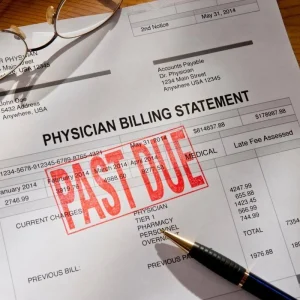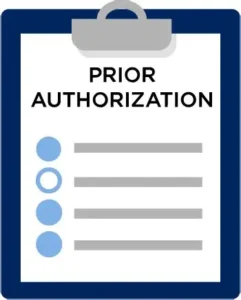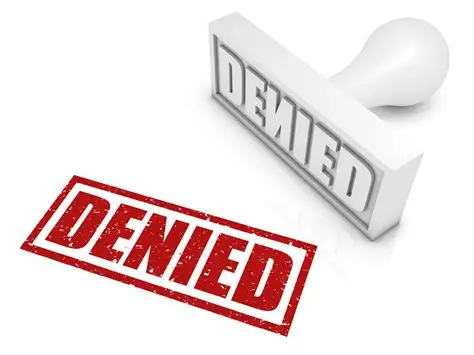
DME billing plays a significant role in medical billing and coding. HCPCS Level II codes are used to capture non-physician services, supplies, and durable medical equipment. The certified specialists at DME Billing Services USA, such as Med Billing RES, understand the specific coding requirements for durable medical equipment. Partnering with experienced DME billing experts can help you increase reimbursements, enhance patient satisfaction, and focus on what truly matters—patient care.
The CMS updates HCPCS Level II codes for DME in medical billing every year, requiring medical billers to stay updated. These complexities can significantly impact claims and demand attention to detail.
HCPCS Level II Codes: DME claims rely on the Healthcare Common Procedure Coding System (HCPCS) Level II codes, which are alphanumeric and used to identify products, supplies, and services not covered by CPT codes.
Specific codes for specific items: Each piece of DME has a unique HCPCS code to categorize its use, type, and medical necessity. For instance, a semi-electric hospital bed with head and foot adjustments is coded E0260, while a CPAP machine is coded E0601.
Different codes for renting or purchasing: DME billing distinguishes between renting and owning equipment with specific codes for each.
Modifiers: Modifiers play a crucial role in DME billing by providing additional details about the item and its usage. They can indicate factors like rental periods (e.g., first-month rental), medical necessity, or extended use. Misusing or omitting modifiers may result in claim denials.
Accurate documentation is key to DME billing compliance. This includes:
Detailed physician orders, also known as a Standard Written Order (SWO) or Detailed Written Order (DWO), which confirm what a physician has prescribed for a patient. These must be signed, dated, and include the exact DME, patient’s diagnosis, patient and physician information, length of need, and any special instructions. For DME drugs under the DME benefit, the order must also specify the drug name, dosage/concentration, duration, quantity, and refills.
The detailed physician order serves as a link between the physician’s prescription and the DME supplier’s billing process, ensuring the correct equipment reaches the right patient and the claim is fully supported for reimbursement.
Streamlining prior authorization (PA) in Durable Medical Equipment (DME) billing involves simplifying the approval process with insurance payers to ensure faster delivery of DME items to patients.
Challenges include time-consuming procedures, complexity, frequent updates, reliance on manual processes, and high denial rates.
Around 20-30% of DME claims face initial denials due to errors in documentation and coding, highlighting how common these issues are. An industry report notes that up to 20% of all medical claims are denied on the first submission. Denied claims lead to costly and time-consuming rework, with an average cost of $118 per claim for complex DME cases. Common reasons for these denials include inaccurate coding, missing documentation like patient information or prescriptions, lack of prior authorization, and insurance coverage problems. Additionally, using outdated coding resources and failing to meet specific payer requirements contribute to the issue.
Mon – Fri
09 AM – 05 PM
Sat – Sun
Closed
DME billing plays a significant role in medical billing and coding. HCPCS Level II codes are used to capture non-physician services, supplies, and durable medical equipment. The certified DME billing specialists at Med Billing RES understand the specific coding requirements for DME. Partnering with them can help you increase reimbursements, enhance patient satisfaction, and focus on what truly matters—patient care.


The CMS annually updates HCPCS Level II codes for DME in medical billing, requiring billers to stay informed. These complexities can heavily affect claims and demand precision.
HCPCS Level II Codes: DME claims utilize the Healthcare Common Procedure Coding System (HCPCS) Level II codes, which are alphanumeric and identify products, supplies, and services not included in CPT codes.
Specific codes for specific items: Each DME item has a distinct HCPCS code to define its purpose, type, and medical necessity. For example, a semi-electric hospital bed with head and foot adjustments is coded E0260, while a CPAP machine is coded E0601.
Different codes for renting or purchasing: DME billing differentiates between renting and owning equipment through specific codes.
Modifiers: Modifiers are essential in DME billing, offering additional details about the item and its use. They can indicate rental periods (e.g., first-month rental), medical necessity, or extended use. Errors in using or omitting modifiers can lead to claim denials.
Accurate documentation is key to DME billing compliance. This includes:
Detailed physician orders, also known as a Standard Written Order (SWO) or Detailed Written Order (DWO), which confirm what a physician has prescribed for a patient. These must be signed, dated, and include the exact DME, patient’s diagnosis, patient and physician information, length of need, and any special instructions. For DME drugs under the DME benefit, the order must also specify the drug name, dosage/concentration, duration, quantity, and refills.
The detailed physician order serves as a link between the physician’s prescription and the DME supplier’s billing process, ensuring the correct equipment reaches the right patient and the claim is fully supported for reimbursement.


Streamlining prior authorization (PA) in Durable Medical Equipment (DME) billing involves simplifying the approval process with insurance payers to ensure faster delivery of DME items to patients.
Challenges include time-consuming procedures, complexity, frequent updates, reliance on manual processes, and high denial rates.
Around 20-30% of DME claims face initial denials due to errors in documentation and coding, highlighting how common these issues are. An industry report notes that up to 20% of all medical claims are denied on the first submission. Denied claims lead to costly and time-consuming rework, with an average cost of $118 per claim for complex DME cases. Common reasons for these denials include inaccurate coding, missing documentation like patient information or prescriptions, lack of prior authorization, and insurance coverage problems. Additionally, using outdated coding resources and failing to meet specific payer requirements contribute to the issue.

8655 Bay Parkway, Brooklyn NY 11214
Mon To Friday
9:00 am to 5: 00 pm
Contact us : +1 862 413 4315
Stay in the know with news and promotions